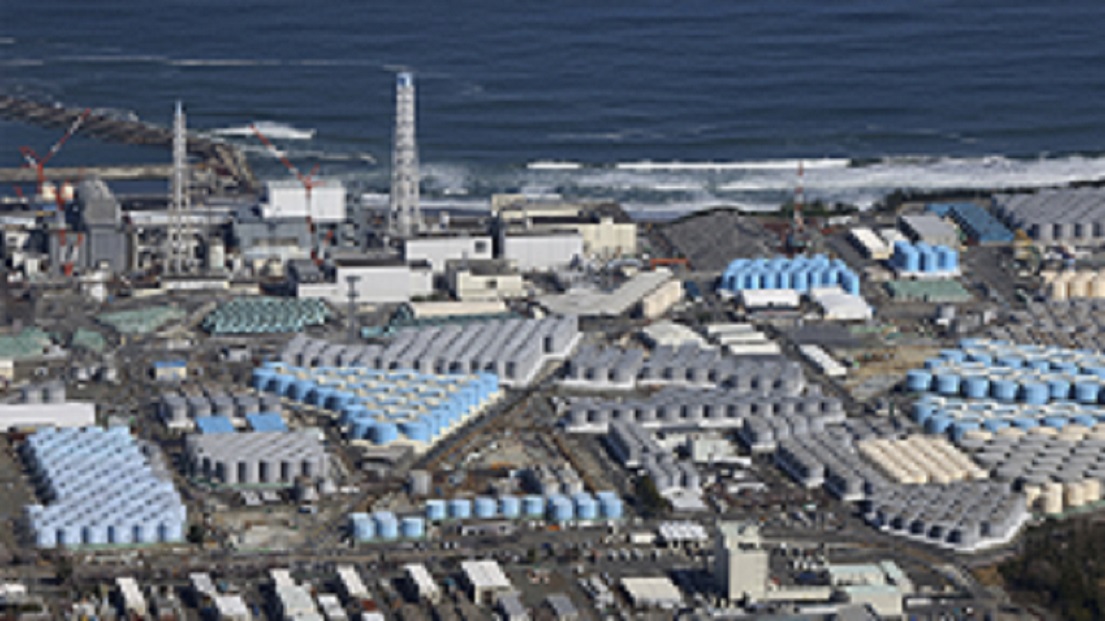As I was halfway through writing this week’s column [on the enormity of China’s economic troubles], my Editor insisted that I write on a ‘human interest’ topic this week as I have not kept my promise to do so all these weeks. Of the many subjects that we discussed, we decided to zero in on the latest reports of common salt vanishing from supermarket shelves on the Chinese mainland, Hong Kong, and Macau. It was the news about the Japanese releasing the accumulated treated wastewater from the damaged Fukushima nuclear power plants to the Pacific Ocean that prompted the residents to empty out iodised salt off the otherwise well-stocked supermarkets in these territories. Several Chinese even bought Geiger counters to detect levels of radioactivity (the instrument’s limitations notwithstanding) in the foodstuff they buy. Taking advantage of the situation, several stores, including those run by the local governments, hiked up the price of iodised salt by up to 15 times the prevailing rates to counter the radioactive wastewater release.
According to reports, the release of treated wastewater ‘used to cool radioactive debris trapped inside the Fukushima nuclear facility and stored in over 1,000 tanks’ would be done over a period of 30 long years so that the quantity of the treated water getting mixed with the seas did not cross certain predetermined levels. Japan assured that it would continuously monitor radioactivity in the waters and marine life in the vicinity and the data would be made publicly available. The Japanese made it clear that they were releasing the wastewater after the IAEA certified that it was safe for release.
The Chinese Foreign Ministry used some of the choicest barbs like “ecological and environmental destroyers” and “global marine polluters” to lash out at Japan. China immediately banned imports of marine products from several Japanese prefectures and imports from other areas would be subjected to radiation checks. Naturally, Hong Kong and Macau followed suit. So did South Korea, though the opinion there was largely divided on the issue.
Some Chinese netizens alleged that the government’s hyperreaction was aimed at switching people’s focus from other issues, particularly its worsening economic woes. Secondly, independent analysts, even in China, aver that the government response was doomed to fail as the share of marine products in the overall Sino-Japanese trade is too small to make any impact. They maintained that if the Chinese administration were really serious about ‘teaching the Japanese a lesson’ (as they usually say), they should have targeted other items that would have hurt the Japanese. Curiously, the fact that the Japanese were releasing the wastewater only after the IAEA certified that it was safe for release was not mentioned in the Chinese media reports.
2011 Earthquake and Tsunami
The reports of Chinese panic buying of salt brought back memories of a similar episode in March 2011 when I was still in China. The Great Tōhoku Earthquake in northeastern Japan caused widespread devastation in the country, including the loss of thousands of human lives. It also triggered a series of tsunamis causing more destruction in the Japanese coastal areas and badly damaging the Fukushima nuclear power plant on Japan’s Pacific coast (from where the treated water is being released now).
As it happens during such disasters, rumours started floating around immediately afterwards. One of the rumours that gained immediate currency was about clouds carrying radiation from Fukushima moving towards China. Along with it circulated another story; that iodised sea salt could effectively contain or neutralise radiation in human beings. So, in a matter of hours entire stocks of salt in supermarkets and neighbourhood stores particularly in urban centres, and even online shopping sites got sold out. Many customers bought several kilograms of salt, equivalent to a few months to a couple of years of their regular household requirements. Chinese media criticised citizens for their insensitivity that they did not think of leaving behind a few packets (of salt) for their compatriots. As of 2023, the shopkeepers had made a quick buck by hiking salt prices manifold in 2011 too.
Some Chinese journalists covering the disaster from Japan juxtaposed the salt episode in China with some exemplary Japanese behaviour in such dire situations. Let me quote a few anecdotes that refuse to fade from memory. A couple of Chinese reporters were travelling towards some disaster-stricken areas when they found cars lined up to fill petrol/diesel at a fuel station. To their surprise they found each driver was only buying a minimal quantity of fuel, and they were not filling up their tanks to capacity. Curious, when the journos asked why they were not filling up their tanks as there were chances of fuel shortage in the next few days, the answer was simple. If they filled up their tanks, the fuel station would soon run out of stock, leaving not enough for the others waiting. The same was the case of Japanese buying groceries, mainly drinking water, at supermarkets. Without any government restrictions, Japanese citizens were buying food and water for only a day or two at a time! Imagine similar situations in any other country in the world! The customers who arrived first would have emptied the stores leaving hardly anything for those who came in late.
Some of the greatest stories of human self-sacrifice heard in my lifetime happened at Fukushima when the famous Fukushima-50 (perhaps more than fifty men) stayed back to shut down the damaged plants ignoring the definite possibility of suffering radiation. When they decided to stay back, they knew many of them had no future. The unmarried among them would never get married. And none of them would have a child again, that is, if they survived. I don’t wish to melodramatise quoting the heart-wrenching unbelievable individual stories of courage and self-sacrifice at Fukushima where people willingly offered to lay down their lives in the service of mankind. That all those stories of empathy, compassion, and self-sacrifice were coming out of a country that was militaristic and expansionist only a few decades ago did surprise me at the time.
Title image courtesy: Science.org
Disclaimer: The views and opinions expressed by the author do not necessarily reflect the views of the Government of India and Defence Research and Studies
Article courtesy: Asian Institute of China and IOR Studies





